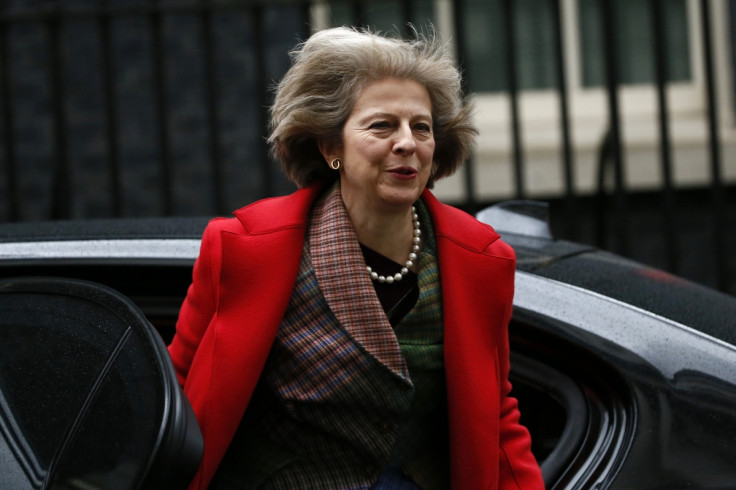Theresa May deals a blow to Eurosceptics after saying Cameron has 'basis for a deal' with the EU

Home Secretary Theresa May has said that David Cameron has the "basis for a deal" with the EU following Prime Minister David Cameron's negotiations with the European Council President, Donald Tusk. The statement is considered a major intervention into the politics around the renegotiation, with many eurosceptics hoping that one cabinet heavyweight would come out to support the Leave camp.
"EU free movement rules have been abused for too long and EU law has stopped us deporting dangerous foreign criminals," May said in a statement. "That is plainly wrong and it is encouraging that the Commission has agreed with the UK that we should take action to address these two issues.
"So we have made progress and negotiations continue ahead of the February Council. As the prime minister has said, more work needs to be done, but this is a basis for a deal," the home secretary added. May's indication that she will support the UK's membership of the EU is a major move for Cameron and could pave the way for more prominent Conservative figures to follow suit.
Tuesday (2 February) marked a defining moment in the UK's EU membership saga, with Cameron saying that the draft deal will result in the "substantial change" he had demanded. He did add that there is "detail to be worked on" ahead of a key summit on 18 and 19 February.
According to a letter published by Tusk, Cameron won what is considered a partial victory for his proposed reform on migrant benefits. The prime minister originally wanted a complete ban on in-work benefits for migrants for four years, but has settled on an "emergency break" that will come into effect immediately if Britain does decide to stay in the EU. The big caveat, however, is that other member states effectively have a veto option as the move would have to be agreed by those nations. It is also not a blanket ban in the sense that access to the in-work benefits will be gradually restored to recognise their integration into the jobs market.
Uncertainty continues to surround the emergency brake, as it is unclear how long it will last, or how easily it can be implemented. Cameron's demand of excluding Britain from an "ever-closer union" between EU countries will also be incorporated into the next treaty.
Responding to the draft EU deal, think tank Open Europe published: "There remain a number of unanswered questions and the details could yet change. The risk of watering it down remains real." It added that a June referendum is "far from assured" and warned: "A deal still needs to be found at the February EU summit".
© Copyright IBTimes 2025. All rights reserved.






















